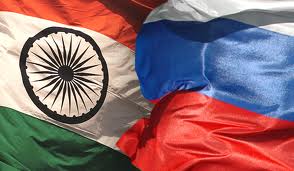
Brussels, April 24: The 27 nation European Union is grappling hard with a serious problem more than ever because of radicalisation of the people, essentially youth, who leave for “safer terrorist havens'', including Pakistan, and eventually returning to strike terror.
And ahead of the crucial review of the United Nations Global Strategy on Terrorism later this year, the EU is seeking greater synergies with New Delhi on counter-terrorism hoping to jointly push through common agenda that benefit both nations.
Gilles de Kerchove, the EU Counter-terrorism Coordinator for NATO and the Council of the EU, said there have been several incidents, some very recent ones, where investigations revealed the magnitude of the issue. Gilles uses the terminology ‘foreign fighters' to explain much of the genesis of the problem.
He said EU nationals, essentially radicalised youth from various European nations, have been leaving their countries to attend training camps in Somali and Pakistan. They return to strike and investigations reveal linkages with Al-Shabaab, a Somalia-based cell of the militant Islamist group al-Qaeda, he maintained.
Germany, he said, saw nearly 200 of its nationals leave for Pakistan and even Afghanistan, for training in armed warfare to execute terror strikes. “At least 70 of these fighters returned to Europe, perhaps disillusioned or for one or the other reason. Many were arrested,” Gilles told Indian reporters in Brussels last week.
The EU has taken up the matter with Pakistan. Just like India, the EU wants Pakistan to act against such ‘safe haven' modules operating within its borders.
Gilles minces no words in saying “Pakistan never convicts terrorists”. He goes on to blame the procedural weakness in its system that was causing much of the problems in Pakistan. But at the same time, the EU has preferred to heavily engage with Pakistan strategically. Top sources in the EU's Security Policy, who did not want to be quoted, said they were in the process of finalising a much durable long term engagement plan with Pakistan.
At least 7 EU nations including France, Spain and Germany have faced incidents of such terror at the hands of these trained foreign fighters. Trial related to one such case began in Belgium last week.
The EU at the moment does not have a mechanised intelligence service to explore any plausible option of real time information sharing with other nations. That's perhaps the key to counter-terrorism and the EU realises it as a matter of priority.
Earlier this month, experts from the Security Policy EEAS based in Brussels held deliberations with India on counter-terrorism.
The way forward too has a heavy element of intelligence sharing. An invitation has been extended by the EU for serious deliberations later this year between the Europol and Indian agencies including the CBI and the National Investigative Agency. A high level delegation of the CBI and NIA is likely to visit security experts in Brussels.





Comments
Add new comment